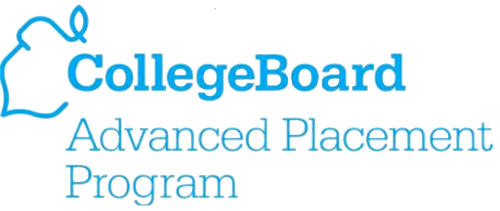This course is for both NEW and EXPERIENCED chemistry teachers who can expect an extensive look at the redesigned chemistry course outlined in the AP Chemistry Curriculum Framework. Curriculum Framework activities will explore the revised curriculum requirements and introduce the experiences of guided inquiry in labs and the classroom.
The focus of this course includes:
- Setting up a Successful Course in AP Chemistry
- Reflection and debriefing of classroom and lab experiences after teaching the new course
- Successful strategies for teaching the new content areas like photoelectron spectroscopy
- Incorporating successful inquiry labs; converting traditional to inquiry labs
- Using inquiry in the classroom
- Converting questions from released AP exams into the type that would be found in the new format of testing; generating more questions for homework and assessment
- Analyzing test data as well as the new method of score distributions
Time and guidance will be provided for collaboration and practice with the above topics. Opportunities will be provided to share strategies for incorporating more inquiry in both the lab and the classroom. Each teacher will bring materials to share for major content or problem areas (i.e. equilibrium, buffers, electrochemistry, IMFs), such as notes, labs, exams, formative assessments, suggestions for refining and adopting different approaches. There will be one to two hours of homework daily.
Day 1
- Welcome, Introductions & Expectations
- Curriculum Guidelines/Course Description/Equity and Access/Handbook ContentsExplore the AP Exam
- The AP Course Audit
- Unit 7: Chemical Equilibrium
- Overview
- Equilibrium Lab
- Scope and Sequence of AP Chemistry Curriculum
- Exploring the CED
Day 2
- Unit 6: Thermodynamics
- Overview
- Lab – Thermodynamics
- Multiple Choice Analysis
- Unit 5: Kinetics
- Overview
- Lab
- Mock Reading (scoring) FRQs
- Best Practices Sharing
Day 3
- Unit 9: Applications of Thermodynamics
- Overview
- Lab
- Scaffolding
- Unit 3: Intermolecular Forces and Properties
- Overview
- Lab
- Mock Reading (scoring) FRQs
- Best Practices Sharing
Day 4
- Unit 1: Atomic Structure and Properties
- Lab – Gravimetric Analysis of
- Inquiry Learning Activity
- Scaffolding and Differentiated Learning
- Scoring FRQs
- Best Practices Sharing
Stephen Pulliam is a passionate educator inspiring and challenging students to reach their potential in the classroom and beyond. For nearly 25 years, he has been shaping the minds of his students in the sciences and other STEM classes. In 2003, he began teaching AP Chemistry, became an AP Reader in 2009, and a Table Leader in 2012. In 2015, Stephen piloted materials for the AP Insight Chemistry program and soon thereafter became a consultant conducting workshops across the country. Stephen also serves as a consultant for the National Math and Science Initiative, leading workshops and student study sessions nationwide. Currently Stephen is the Chair of the Science Department at Delaware County Christian School in Newtown Square, Pennsylvania, in addition to teaching AP and Honors Chemistry. He also serves as the assistant coach to girls’ varsity basketball and middle school baseball. In his spare time, Stephen enjoys spending downtime with his wife and children, and especially venturing off on fishing trips with his son.
Course Instructor

Stephen Pulliam
M.S. , Stony Brook University NY
Institute Faculty
The faculty have been selected for their teaching expertise, creativity, innovations in teaching and experience with the AP* Program curriculum. All faculty members are endorsed and certified by the Middle Atlantic Regional Office of The College Board and have demonstrated a commitment to excellence that is second to none.
Daily Schedule
Classes run from 7:30-400 – Instructors will send you an agenda with their class times. Class times may vary depending on the instructor.
Opportunity
Instructors encourage sharing among participants that will enhance the knowledge and skills of all participants for effective teaching. The opportunity to exchange and communicate with instructors and colleagues within the Middle Atlantic Region and beyond is a valued support resource for the entire school year.
Questions/comments
Questions/concerns about your particular course can be addressed by going to course description and clicking on the “Ask a Question” button. You will then be able to e-mail the instructor. Any problems call the Lewes AP* Summer Institute office at 302-567-1400.

* This Summer Institute has been endorsed by Advanced Placement Program, AP, Pre-AP, College Board and it’s logo are registered trademarks of the College Board.

